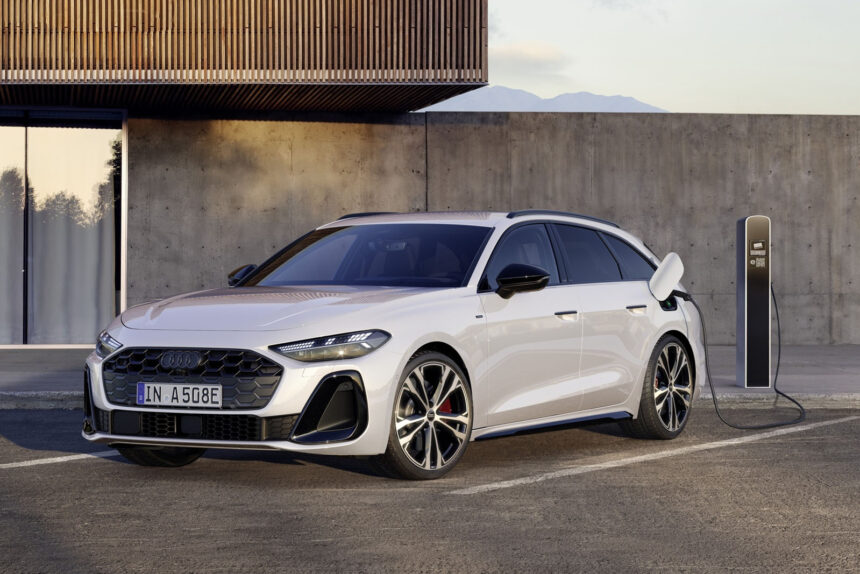The Audi A5 Introduces Plug-In Hybrid Variant in June
The highly anticipated Audi A5 is set to welcome a new plug-in hybrid variant in June, marking the introduction of one of ten new PHEVs to be unveiled by the renowned German brand across its lineup by 2025.
Launched last November, the Audi A5 initially offered petrol and diesel power options, taking over from the A4 in Audi’s revised naming strategy that now aligns even numbers with electric cars and odd numbers with ICE cars.
The innovative PHEV powertrain of the Audi A5 is built around the 2.0-litre variant of Volkswagen Group’s popular EA888 turbo petrol four engine, which is paired with a 140bhp electric motor housed within the seven-speed automatic gearbox, delivering an impressive total output of 295bhp. This variant is exclusively available in the UK in the four-wheel-drive Quattro configuration.
Equipped with a new 20.7kWh (usable) battery, the Audi A5 PHEV boasts an electric-only range of 67 miles, with the ability to be charged using a maximum AC current of 11kW. The battery can also be replenished through regenerative braking, with different levels selectable via paddles located behind the steering wheel.
In addition to the sedan model, the Audi A5 PHEV is also offered in the Avant estate bodystyle, providing customers with a versatile range of options to suit their preferences.
Pricing for the Audi A5 PHEV starts at £48,950 for the Technik trim level in the sedan variant, with the top-tier Edition 1 trim of the estate model reaching £60,520. Deliveries are slated to commence in mid-June, offering customers the opportunity to experience the cutting-edge technology firsthand.
Joining the Audi A5 in receiving PHEV systems this year are the A3, A6, Q5, and the upcoming next-generation Q3. Furthermore, the new Q7 and the anticipated Q9 (known by this moniker for now) are also set to incorporate PHEV powertrains upon their launch in the near future.
This strategic move by Audi reflects a renewed commitment to extending the lifespan of its ICE range beyond 2032, acknowledging the varying rates of EV adoption across different regions worldwide.
In a recent interview with Autocar, CEO Gernot Döllner emphasized the longer-than-expected transition to EV powertrains, stating, “For all global regions, we are going to take a look at the life of combustion engines. 2032 was the date we had communicated, but we have to reassess those dates and deadlines.” This reevaluation has prompted Audi to invest significantly in new-generation hybrid technology to prolong the viability of combustion powertrains.
As Döllner aptly summarized, “On balance, an extension of combustion engines will have a positive impact on our business model,” underscoring Audi’s commitment to innovation and sustainability in the automotive industry.







